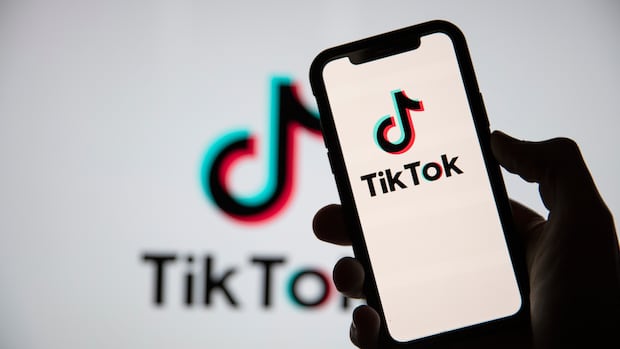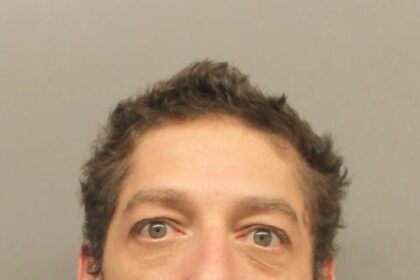After analyzing 200 videos, Marketplace found about 80 per cent of those reviewed featured treatments or cures for autism and cancer that are not supported by science. (Adobe Stock)TikTok has become a go-to source for health advice for millions of people. But when you search for treatments for cancer and autism, the vast majority of the videos first served to you feature claims about treatments that are not supported by science, a new test by Marketplace has found. Marketplace journalists analyzed 100 videos discussing cancer treatments and another 100 for autism therapies. We found that at least 80 per cent of the remedies in the videos — totalling more than 75 million views — weren’t supported by scientific evidence.Many of these clips get traction because they are grounded in compelling personal stories, said Tim Caulfield, a health misinformation researcher.”Testimonials, anecdotes, stories — probably the number one way that unproven therapies are pushed on social media,” he said. “We’re wired to listen to stories and to be compelled by stories.”Marketplace searched TikTok for cancer videos using the search terms “cancer cure” and “cancer treatment,” and for autism videos using the terms “autism cure,” “autism treatment” and “autism.” Starting with the most viewed, we chose 100 each that featured a treatment or cure.Cancer ‘feeding’ on sugar not supported by scienceClaims about anti-cancer diets or fasting as a cure for cancer appeared in more than a third of the videos featuring cancer treatments.In one now-removed video with more than a million views, from a creator linked to a juice company in the Toronto area, a man claimed that cancer is fed by starchy or otherwise high-sugar foods, like white rice, bread, or candy. Replacing these foods with “low-sugar” alternatives like avocados and eggs will kill off the cancer cells in one’s body, he asserted.A screenshot from a now-deleted video on TikTok that makes an unproven cancer claim. (freshouse.juicebar/TikTok)Dr. Abha Gupta, an oncologist based in Toronto, said there’s simply no science to back that claim up.”Sugar consumption does nothing to cause cancer,” she said, adding that cutting out sugar doesn’t help treat it, either. She said the body breaks all foods down into one of a few types of sugars — whether that’s a doughnut or an apple.She said she confronts “dangerous” misinformation like this in her practice all the time. She’s had cancer patients come in after cutting all sugar from their diet, thinking it would help them fight the disease. Instead, she said, they lose weight and often feel worse.”One has to maintain their weight if they have cancer or they’re on cancer therapy,” she said.When Marketplace reached out to the account behind the video, the creator stood by his claims.Anti-parasitic drugs aren’t proven to treat cancerAnother prominent claim found repeatedly in the videos is that anti-parasite drugs can be taken to treat cancer.That includes fenbendazole, which is used to treat worms in animals, and ivermectin, which treats parasites in humans and animals. The claim that these drugs can cure cancer appeared in nine videos, for a combined 1.3 million views; celebrities like actor Mel Gibson claim that friends have taken the drug and seen their cancers subside. Some accounts even discredit conventional treatment.Dr. Abha Gupta reviewed many of the videos we analyzed from TikTok, and says that patients come to her asking about unproven treatments ‘all the time.’ (CBC)Gupta’s take? “It’s garbage. Complete garbage.”Caulfield said this particular myth has proliferated since ivermectin was touted as a treatment for COVID-19 by right-wing commentators and some doctors whose medical opinion diverged significantly from the scientific consensus, without enough evidence. A spokesperson for Mel Gibson declined to comment on our story findings. WATCH | Marketplace analyzes health videos on TikTok:Investigating Dr. TikTok: Marketplace puts 200 health videos to the test TikTok is flooded with videos promising miracle treatments for autism and cancer, but how many are true? Marketplace investigated 200 health videos on the platform and found misinformation is not only widespread, it’s thriving.Chelation therapy for autism can be dangerousMarketplace journalists also found treatments our experts identified as dangerous among the 100 videos on autism.One video with 760,000 views claimed that chelation therapy — typically used to treat heavy metal poisoning — can improve communication and behaviour in children with autism.The medical procedure involves using an IV to administer chemicals that bind heavy metals in the body and eliminate them. The video claimed that removing these heavy metals improves autism symptoms. In addition to this claim being unsupported by science, the treatment can be dangerous, said Dr. Melanie Penner, a pediatrician and autism researcher in Toronto.”There is a risk of death that comes with these treatments,” she said. “[It] can cause the electrolytes, the minerals in your body, to shift rapidly.”That can lead to heart rhythm abnormalities, she said.”It makes me really concerned that so many people are hearing a bold, incorrect and dangerous claim like that.”Stem cell therapies not approved in Canada for treating autismStem cell therapies for autism were featured in at least 14 videos reviewed by Marketplace, racking up 3.2 million views altogether. It involves infusing stem cells into the body using an IV.There are only three approved cellular therapeutic products in Canada, and none have been cleared for treating autism.One video reviewed by Marketplace shows the procedure being performed on an autistic girl while her parents narrate. They describe the treatment as showing results “literally the next day.”Penner said the research doesn’t support that. Meanwhile, these treatments can have serious complications.Dr. Melanie Penner says she has a family come to her ‘every week’ to ask about a new treatment for autism they’ve seen online. (CBC)”There are risks of bloodborne infections,” she said. “There have been cases where kids have had stem cells injected into their spinal cord fluid that led to bad growths in the brain.”The creator of the video told us the improvements they’re seeing in their child’s behaviour are irrefutable.Who is sharing this information? The creators of the videos Marketplace reviewed were often not medical doctors or professionals in the field, instead ranging from parents of children with autism to people who claimed they beat cancer using the treatments they’re promoting. Meanwhile, several clips were created by accounts that potentially earned money from their alleged treatments.One creator says she is the mother of a child with autism. Most of her content focuses on her son and his treatment. In a now-deleted video she touted her company’s detoxifying supplement that she claimed help improve her son’s behaviour; she sold the supplement as part of a kit in her online store for $190 each.Caulfield called it “exploitative.””It’s using a story that maybe other families could relate to,” he said. “It’s wishful thinking. There’s really no solid evidence to support this at all.”Maddy Dever, an autistic parent to four autistic children, is used to seeing questionable treatments for the condition online.”I feel for parents who are trying these things because they really want to see their kids not struggle and, in some cases, not suffer.””It makes me angry,” they said, adding that their anger is directed at the creators, not the parents. “If you legitimately see something as a legitimate therapy to support change for people, for kids, then you go through the process to prove that it works.”Marketplace showed autism advocate Maddy Dever several of the videos featuring treatments for autism that are not supported by scientific evidence. They’re angry that parents who are trying to do the right thing for their children will get sucked into buying these treatments. (CBC)Dever worries about so-called “cures” for autism, and the message that these types of unsupported treatments can send about autistic children.”We’ve moved to acceptance, where we’re accepting that autistics have a right to be here. We do things differently, and difference is OK.”Many of the videos Marketplace shared with TikTok have since been taken down.TikTok declined an interview with Marketplace, but said that the platform doesn’t allow health misinformation that can cause significant harm. They said the company removes content that violates its guidelines, and that users are given warnings when searching for cures or symptoms, reminding them not to use the platform for medical advice.
We analyzed 200 cancer and autism videos on TikTok and found the majority contain misinformation











